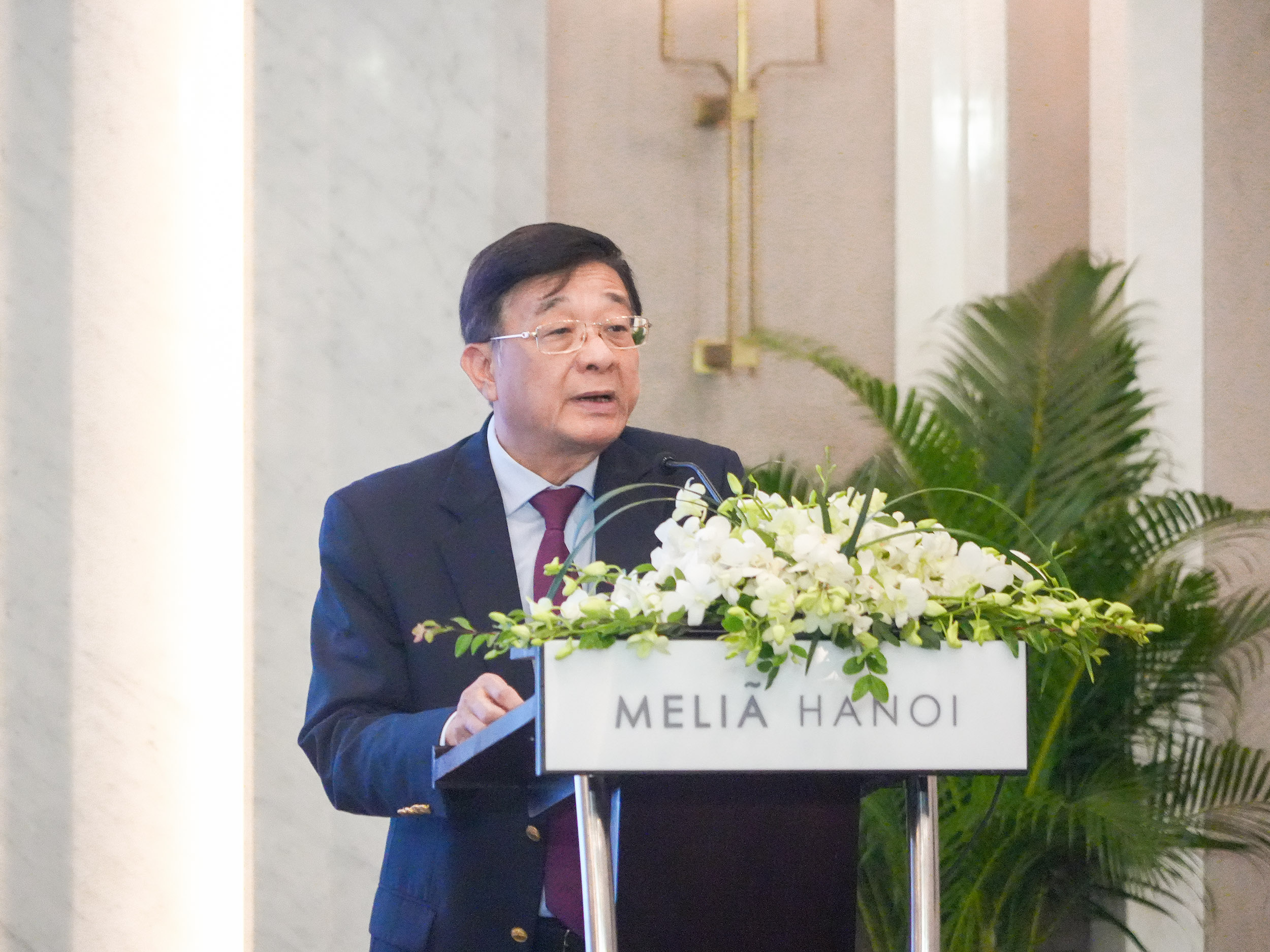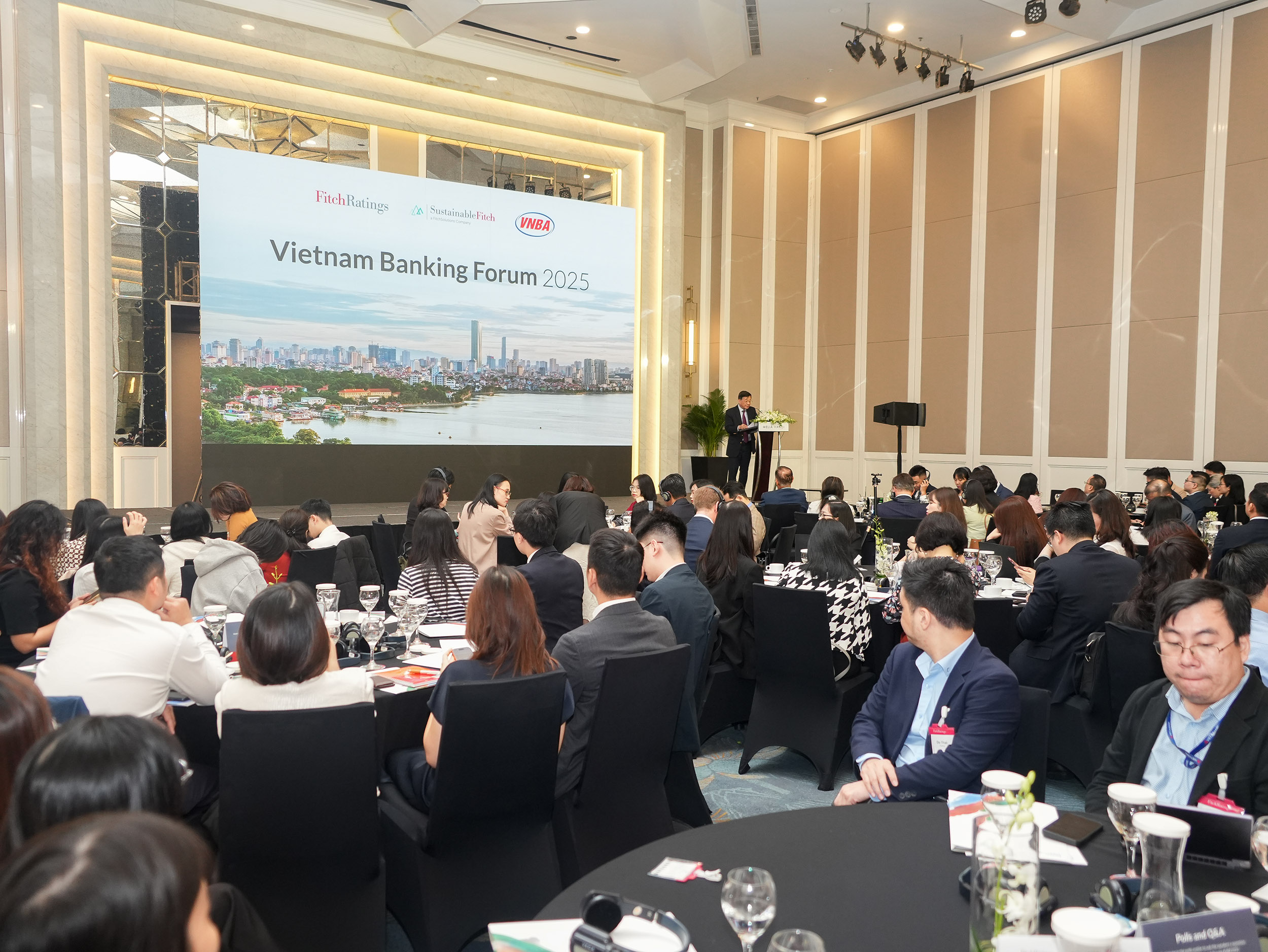“Credit ratings and sustainable finance are two important dimensions in the operations of the banking system. A banking system with high creditworthiness, evaluated transparently, will build confidence among investors and international partners. A banking system that develops sustainably will ensure long-term prosperity and contribute to the green growth of the economy. When combined, these two factors become the foundation for Vietnam to build a modern, efficient and resilient financial system,” Dr. Nguyễn Quốc Hùng emphasised.

Dr. Nguyễn Quốc Hùng, Vice-Chairman and Secretary General of the VNBA
Credit Ratings as the “Financial Passport”
Dr. Nguyễn Quốc Hùng highlighted that in the context of deepening global integration and post-pandemic recovery, the banking sector in Vietnam plays a core role in capital supply, promoting investment and supporting economic growth. At the same time, demands on credit quality, risk management capacity, transparency and sustainable growth are increasingly pressing.
He described credit rating as a “financial passport” for banks, reflecting financial capacity, governance quality and the level of trust of domestic lenders in both domestic and international markets. Banks that obtain ratings from reputable international agencies such as Fitch, Moody’s and S&P are improving asset quality, capital safety and profitability — which in turn reinforces investor trust and helps to reduce funding costs.
Sustainable finance: Emerging but critical
In parallel with credit ratings, Dr. Nguyễn Quốc Hùng noted that sustainable finance is a strategic orientation that the Vietnamese banking sector is actively pursuing. In the face of global climate change and the urgency of green transition, financial institutions have a crucial role in directing capital flows to environmentally-friendly, energy-efficient and socially-valuable sectors.
He referenced Vietnam’s commitment under COP26 to reach net-zero emissions by 2050, which has spurred the banking sector’s initiatives to issue green credit policies, develop environmental, social, and governance (ESG) risk criteria, issue green and sustainability bonds, and cooperate internationally to mobilise green capital and learn ESG governance.
However, Dr. Nguyễn Quốc Hùng admitted that sustainable finance in Vietnam is still at an early stage. He underscored the need for unified standards, reliable ESG data and clearer policy mechanisms to underpin this shift.
Towards a modern, transparent, resilient banking system
According to Dr. Nguyễn Quốc Hùng, the combination of high creditworthiness (via ratings) and sustainable finance sets the foundation for building a banking system that is modern, effective and resilient to global shocks.
He affirmed that the VNBA, as the professional association representing the banking community, will continue to accompany its member institutions in enhancing governance capacity, meeting international standards and marching toward sustainable development.

In closing, he expressed gratitude to the State Bank of Vietnam, Fitch Ratings, the experts and delegates present, and expressed confidence that the insights shared at the forum would contribute to Vietnamese banks consolidating their credit-rating capacity, advancing sustainable finance and deepening integration with international markets.
VNBA News
